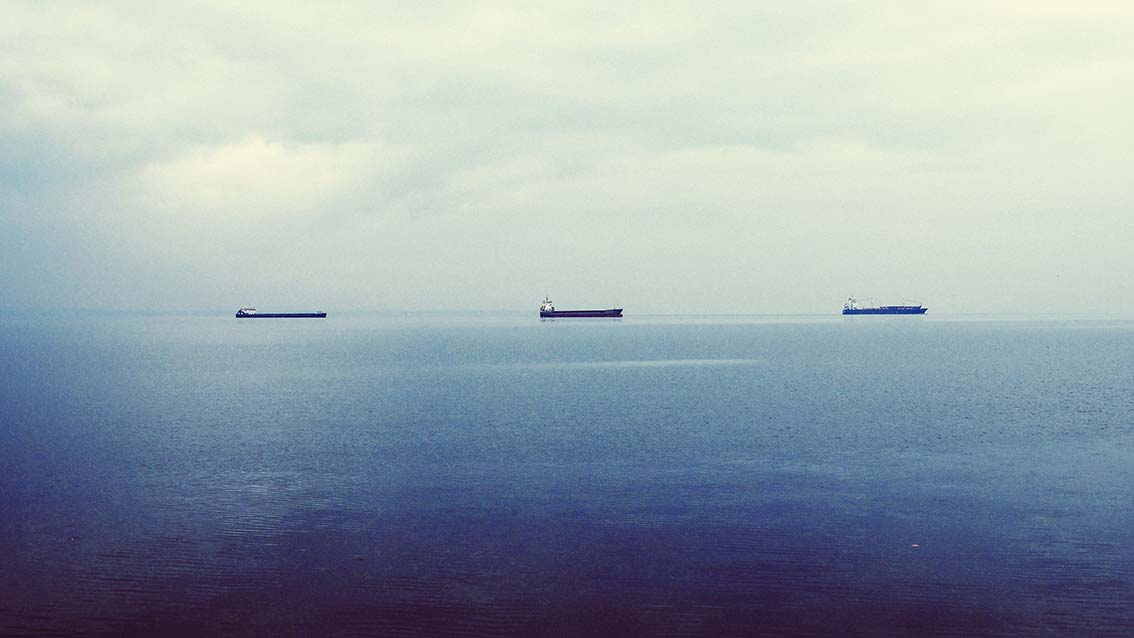Decarbonisation and Skuld's role
Today, shipowners and charterers are facing complex challenges in the transition to reduce emissions. Skuld is a reliable partner on the journey to reduce Green House Gases (GHG) and meet relevant International Maritime Organisation (IMO) target levels.

A precautionary approach
Skuld's role is reflected in our purpose statement "Safeguarding our maritime community today and for generations to come", ensuring a precautionary and caring approach to foreseeable health, safety and environmental risks in shipping. Our environmental, social and governance (ESG) efforts consist of a wide range of activities that demonstrate our commitment to sustainability. Skuld is providing financial protection and risk assessments of new technology and fuels, and helping to advise on emerging sustainable regulations and policies.
FuelEU Maritime Regulation
From 1 January 2025 the FuelEU Maritime Regulation will enter into force with the aim to reduce the greenhouse gas (GHG) intensity of the fuel used on board. The regulation applies to all cargo and passenger ships above 5,000 GT calling at or departing from ports within the European Economic Area (EEA) for commercial purposes.
The regulation intends to promote the use of renewable and low-carbon fuels, supporting the EU’s target of a 55% GHG reduction by 2030 compared to the 1990 levels as per the Paris Agreement and the EU’s goal of climate neutrality by 2050. Compliance options include inter alia pooling, banking or borrowing surpluses, using biofuels, installing and utilising wind-assisted propulsion on board, or for newer dual-fuel vessels to run the engines on renewable fuels of non-biological origin (RFNBOs). From 2030, the regulation also mandates zero-emission operations for container and passenger ships at berth, requiring them to use onshore power supply.
We encourage an open and transparent dialogue with business partners to preserve clear responsibilities under the regulation and explore options for utilising the pooling possibilities. For more information, please see our summary article here or our FuelEU Maritime flyer.
European Union Emissions Trading System (EU ETS)
As of 1 January 2024, shipping companies are required to purchase carbon credits through the European Union Emissions Trading System, where the ship calls in at least one EU port.
The EU ETS operates on a “cap and trade” principle, limiting greenhouse gas (GHG) emissions and reducing the cap annually to align with EU climate targets.
The EU ETS can impact members' and clients' operations. Skuld urges shipping companies to develop knowledge about the EU ETS and its impact on maritime transportation. For members trading in the EU, the cost of allowances can be significant and will increase each year. Prioritising a robust plan for decarbonisation and fleet optimisation is crucial.
Please see our EU ETS flyer for the most important information on shipping companies.
International Maritime Organization (IMO) GHG strategy
In July 2023, IMO updated the global shipping GHG reduction strategy. The shipping industry accounts for approximately 2,7% of the world’s annual emissions and therefore adoption of this strategy is significant for global efforts to align with the Paris Agreement. The new strategy includes four levels of ambition, each aimed at reducing GHG emissions and promoting more sustainable practices within the shipping industry.
Skuld acknowledges these new ambitions from IMO and the challenges that arise for shipowners. Shipowners and charterers must comply with an increasing number of regulations entering the maritime industry. Whether it is the CII, EEXI/EEDI, ETS, Fuel EU Maritime, Sulphur Caps, NOx Ttier requirements or others, they create new challenges. Skuld's expertise and closeness to the market offer benefit of industry insight to members and clients on these topics.
Please see our IMO GHG flyer for more information.
Whether you are a shipowner, charterer or other stakeholders, Skuld is here to assist you in your decarbonisation efforts. Please contact our decarbonisation team to discuss how we can support.

Building knowledge
Continuous knowledge building and organising our efforts are essential to be a leading provider in offering legal and industry advice in a constantly changing environment. Skuld has an underwriting expert group, with the aim to streamline information exchange and to create clear channels towards our local markets.
-

Anna F. Erlandsen
Chief Strategy and Sustainability Officer
Office phone +47 22 00 22 16Mobile phone +47 970 04 213Anna Erlandsen was most recently head of the Oslo office for Norwegian Hull Club. She has nearly two decades' experience within global marine insurance, within underwriting and managerial positions, including board member positions in Norwegian Hull Club and in CEFOR (The Nordic Association of Marine Insurers). She holds a Master’s in economics and finance from the Norwegian School of Economics (NHH) and is an alumnus of Harvard Business School´s Executive Education.
-

Admir Mesic
Vice President, Head of Sustainability
Admir Mesic currently serves as the "Head of Sustainability," with a primary responsibility for executing Skuld's Sustainability strategy. His extensive expertise encompasses areas such as the Global Reporting Initiative, CSRD, and carbon accounting applications. Prior to his current role, Admir has contributed significantly as a strategy and solution architect in the implementation of the European Pollutant Release and Transfer Register (E-PRTR) for emerging EU candidates. He currently holds membership within the expert group affiliated with the UN Global Compact in Norway. Admir holds a Master's degree in Political Science from the University of Bergen and has also pursued education in Machine Learning from the MIT Sloan School of Management.
-

Matias Bøe Olsen
Decarbonisation and Transition Risk Lead
Matias joined Skuld as a Maritime trainee in 2020. He holds an MSc in Marine Technology and works as an underwriter within the NEE business unit. His focus is on Skuld's efforts related to Scope 3 decarbonization, and he offers a comprehensive perspective on the shipping industry's journey toward achieving net-zero emissions by 2050. Additionally, Matias represents Skuld on the steering committee of the Poseidon Principles.







